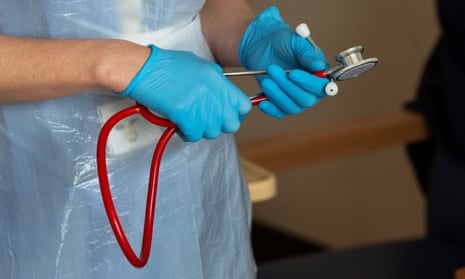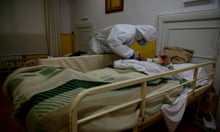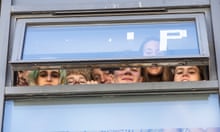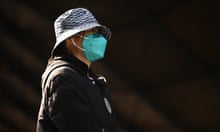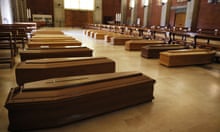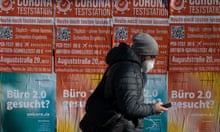Nose-picking should be given greater consideration as a potential health hazard, researchers have said, after finding healthcare workers who engaged in rhinotillexis were more likely to catch Covid than those who refrained.
Scientists in the Netherlands say research has previously found healthcare workers who had direct contact with Covid patients were more likely to catch Covid than those who did not.
Dr Jonne Sikkens, a co-author of the study, said: “After that, we wanted to find out which factors predispose for infections within these groups, for instance touching your nose or even putting your finger inside of your nose.”
Sikkens and colleagues reported in the journal Plos One how they gathered information from 219 healthcare workers at Amsterdam University Medical Centers.
Almost 85% of participants reported habitually picking their nose with a frequency ranging from daily to monthly, while 67% habitually wore glasses and 33% habitually bit their nails. Among the 52 male participants, 16 had a beard. “Doctors were the most frequent nose pickers,” the team wrote.
Overall, 34 of the 219 participants reported having contracted Covid by October 2020, according to PCR or antibody tests; 32 of the infections were among the 185 participants who picked their nose.
After taking into account whether the participants had had close contact with someone with Covid or worked directly with Covid patients – which would affect the level of PPE they were given and their risk of exposure to Covid – those who picked their noses were found to have almost a three times greater risk of developing a Covid infection than those who did not.
Sikkens said with the proportion of nose pickers similar to figures from previous surveys of the general public, it seems participants were not self-censoring their responses. But, he added, while the finding of an association was not a surprise, the size of the effect was unexpectedly large.
The team said that nose-picking may directly introduce the virus to the nose, adding that the behaviour may be an underestimated cause of Covid transmission between healthcare workers.
However the team did not find an association between Covid infection risk and nail-biting, a finding they suggest may be down to proteins in saliva preventing the virus from entering the body’s cells.
No association was found between Covid infection risk and wearing glasses or having a beard – both of which may have affected the fit of PPE – although very few participants had facial hair, making those conclusions less robust.
The authors noted that, among other limitations, information on behaviours such as nose-picking was collected several months after the infection, while participants who picked their noses were not asked about “the depth of penetration and eating of boogers”. In addition, the study was carried out before Covid vaccinations were available and before the rise of Omicron.
Sikkens also noted that as the study was based on observational data, it could not prove that nose-picking was behind the higher infection rates.
“We cannot rule out for instance, that [healthcare workers who don’t nose pick] are more hygienic people overall, and that other factors have led to this finding,” he said.
However the team said their findings suggested nose-picking deserved more consideration as a potential health hazard, given facial hair and other factors were already considered in current advice.
“Explicit recommendations against nose-picking should be included in the same Sars-CoV-2 infection prevention guidelines,” they wrote.
